Juanita Garner Carrothers
Opening the Prison Gates
Juanita was born in Cleveland October 27, 1931 the 2nd of four children. The first eight years of her life she saw her father brutalize her mother. Both of her parents were only children, so Juanita and her siblings had no aunts or uncles. So when "the system' stepped in and declared her parents to be unfit, Juanita went into the Foster Care System.
In the next years of her young life she was passed from one abusive foster home to another. "These were church-going people on the outside but mean, cruel people behind closed doors."
In 1946, at the age of 15 Juanita was placed with a Jewish family in East Cleveland. As a young, black girl she was at first concerned about being placed with a Jewish family. She was tired of the abuse, tired of moving from home to home and had little faith that this new home would be different. But it was. "These people were more like parents that anyone else. They were very kind to me." When Juanita got married it was this kind man who gave her away.
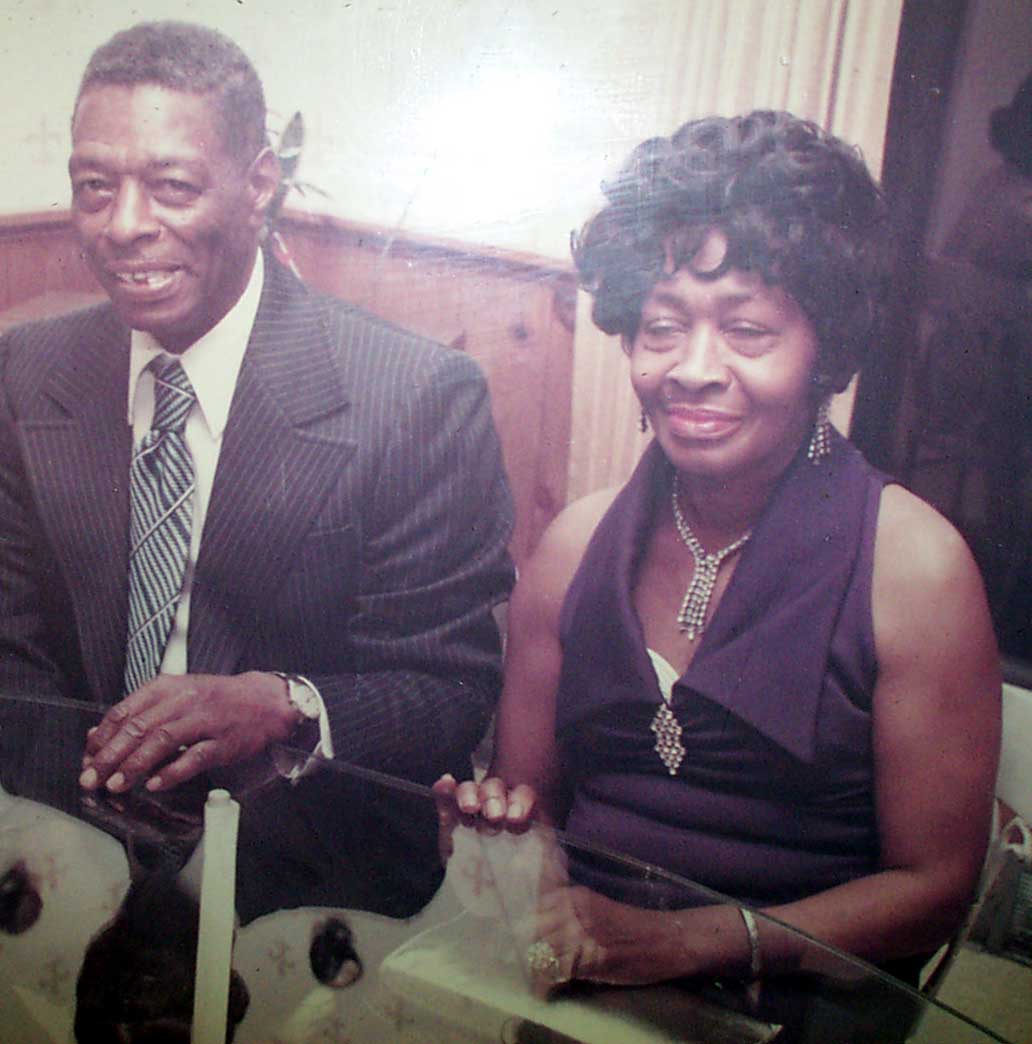
Juanita married her high school sweetheart, the first man she really trusted and cared so deeply about. After being married only four months her best friend confessed to her that she was pregnant and Juanita's husband was the father.
Juanita immediately left her husband. As she had for the last four months she caught a cab from her home at 105th and Westchester to 55th and Chester where she was working to put her husband through barber school.
The cab driver, Dudley, was the same cabdriver she had had for most of her daily trips to work. They had gotten to know each other from their rides together and he knew there was something wrong. She told him she was heartbroken and didn't want to go home. Dudley worked nights and offered his home to her - she could sleep there while he was working. He didn't ask for money; in lieu of rent she cooked and cleaned for him.
Dudley was 18 years older, suave and handsome. They had a beautiful friendship that gradually turned into a romance. "He just swept me off my feet!"
In 1949 they got married and had their first baby, Denise (nicknamed Rosebud) in 1950. Everything seemed to be going well. For the first time Juanita was really happy. During this time in Cleveland there were entertainment spots everywhere. Downtown was booming and Dudley, in addition to driving a cab, was a sax player. So he took her to all of the Clubs and introduced her as his "lovely wife". Juanita was so proud.
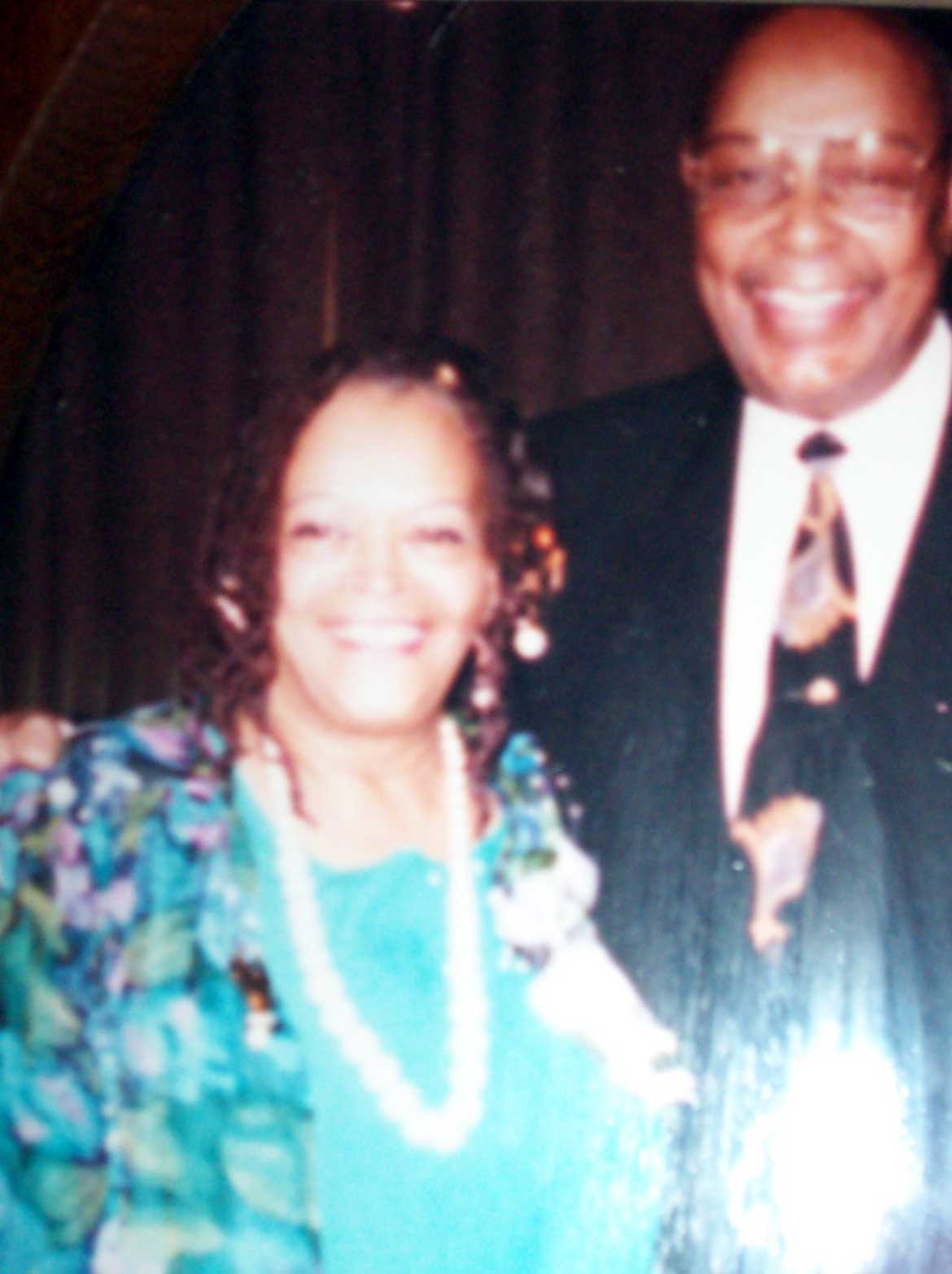
Juanita Carrothers with
Congressman Louis Stokes
Once again, her life was about to take a turn. Her mailbox was always loaded with pictures of naked women. Juanita would throw them out, but more would always appear. She started listening to what people where saying and finally realized the truth - her husband was a pimp. As a cabdriver he was often asked about "finding women" and he was the man to supply them. The pictures turned out to be prostitutes looking for "representation." Juanita was beside herself. Not only was she married to this man, but also they had a daughter.
The suave, sweet-talking man turned into someone Juanita didn't know. He beat her often. She would go over to the Gray Drug Store and buy leeches to put on her eyes to suck out the blood so she could go to work.
She was forced to share a bathroom down the hall from her apartment with the women who worked for her husband. "I had to boil up lye on the stove and put it down the drain and into the toilet so my 15 month old baby wouldn't catch any of those nasty germs and things from these women."
One day the beating just got to be too much. Dudley was coming at her. The baby was screaming. The two were running around the table. "Something in my mind just snapped" and she picked up a pot of lye off the stove and threw it at him. She picked up her daughter and ran for her life.
After many years of looking Juanita had finally found her real mother, so it was to her that she ran with her daughter. But Dudley knew where her mother lived, and in fact had thrown rocks through her windows in the past when he thought Juanita was there. So when she and her daughter got off the bus at her mother's house the police were there to arrest her and took her off to county jail.
They took her daughter into "the system" and the one thing Juanita never wanted to happen became a reality. Her daughter was going into foster care.
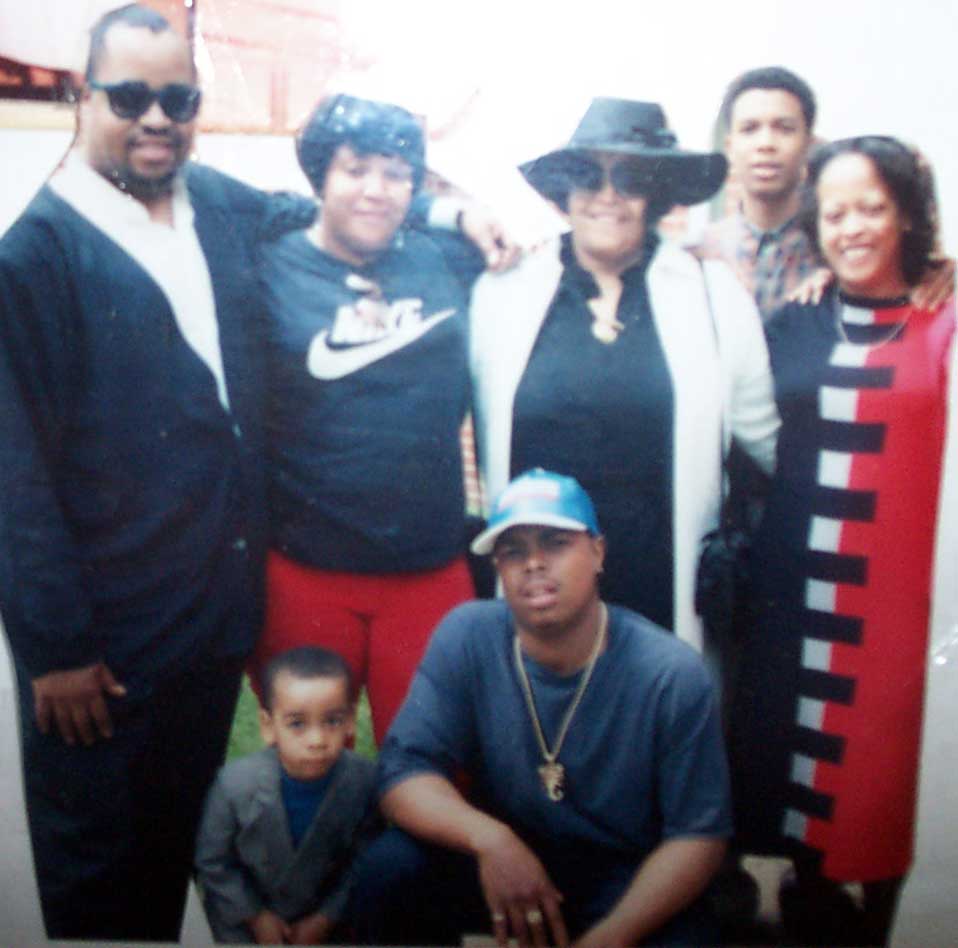
Juanita was pregnant when she went into custody and lost her baby while in County Jail. She was in the facility for 8 months waiting for a public defender. Today, that couldn't happen, but laws were different then and wait she did.
When she finally was assigned a Public Defender he told her he had never represented anyone but prostitutes and pickpockets. Juanita knew she was doomed. Her assault charges turned into first-degree murder when Dudley died 22 days after the incident. "I never wanted to kill him, just stop him. I prayed everyday for forgiveness. I cried so much I had no skin under my eyes."
Juanita's first husband posted her bail, but when the charges changed her bail was cancelled.
Juanita prayed every night. "One night my cell lit up and I knew God was there. A beautiful voice said to me "peace be unto you my child - I will be with you always". From that point on she knew whatever happened she would be okay. Prison life was very foreign to her, but she was at peace in her heart and knew she would make it.
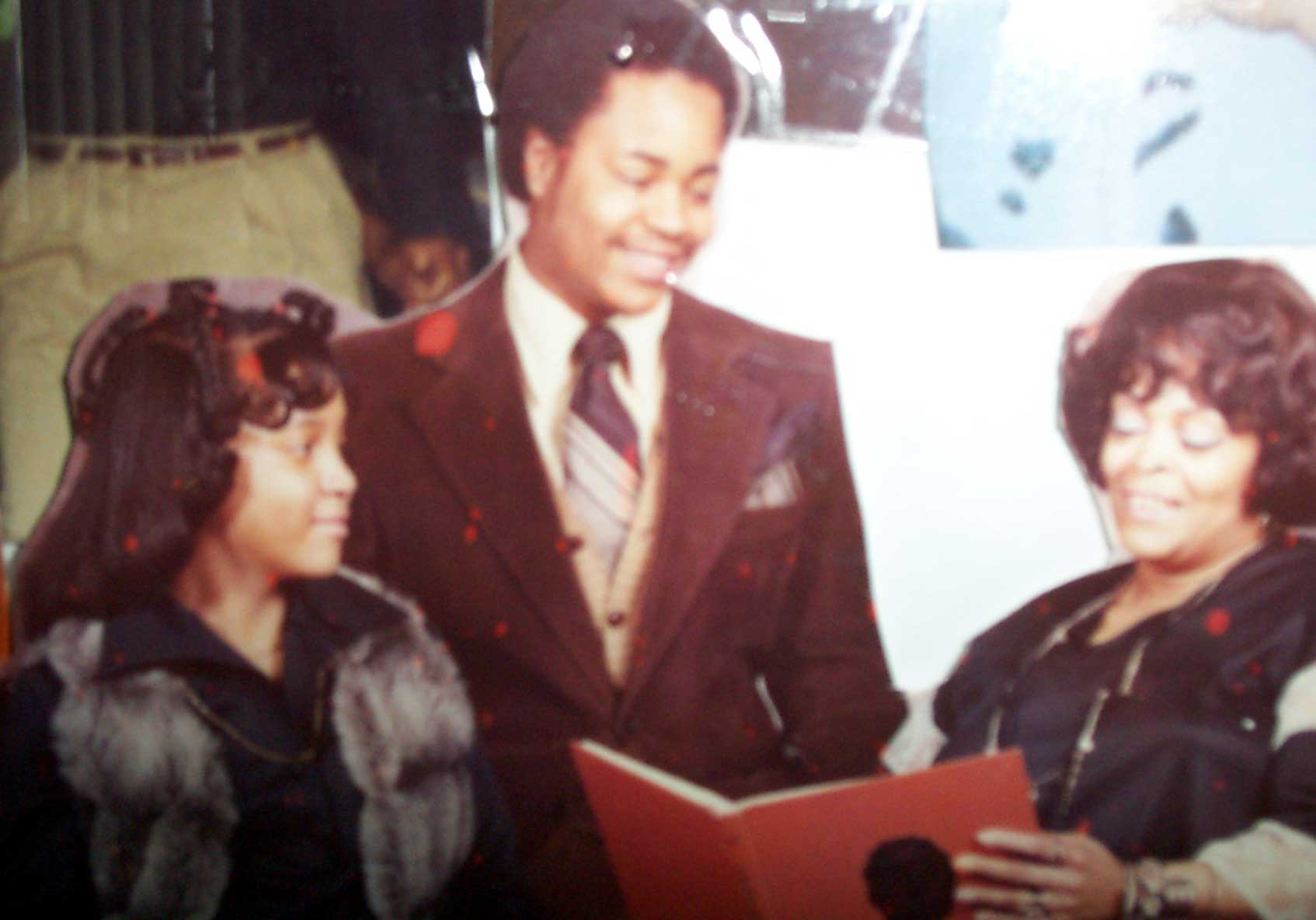
Dudley's parents refused to testify against her in court and instead wrote letters to the judge explaining that their son was a bad man who beat his wife and threatened them.
Again, laws were different at this time. Domestic Violence was not illegal. So Juanita's claim of self-defense was not successful She was convicted of Manslaughter and Maiming. Juanita fainted when she heard the verdict and was taken into the judge's chambers for sentencing. He told her he knew she was not a bad woman and that she was a victim of circumstances and as a result her sentences ran concurrently instead of consecutively. Her sentence was 1 to 20 years at Marysville.
She was separated from the really bad women in the prison because of intervention from the Judge and Marguerite Riley, a former prosecutor who knew Juanita's story. But it still was not easy for her. Every morning she was given a vitamin pill, which she refused to take. She would take the pill and throw it out when no one was looking. She forgot to take the pill out of her pocket one day and it went through the laundry in her pocket. Her punishment was 31 days in the "Underground Dungeon". It was March and she was given one blanket and one bucket of water. "I was cold and scared, but you learn not to complain."
Juanita was up for parole after 2 years. She really believed she was going home. She wanted nothing more than to be a mother to her daughter. But it was not to be.
"The warden who announced that my parole was denied watched me turn into an inmate right in front of her. From that point on I hardened - I started smoking and cursing and just being like the rest of them. It was like my spirit was broke right at that moment."
The parole board said they would reconsider her case in two more years. Two years later, they did, in fact, review the case and she was released. The very first thing she did was to go and pick up her daughter, who was now 5 years old.
Two days after she was released an attorney came to see her. He gave her $100 and told her how proud he was of her. He told her to buy some clothes for herself and her daughter. He took her to Pogue's Parkland at 32nd and St. Clair to celebrate and have dinner. "I thought I was drinking sodas, but it turned out to be something else. Next thing I know I was waking up in his bed. He told me in a real calm voice if I ever said anything I'd wind up back at Marysville. I cried and cried but I knew my life outside of prison had to be on my terms and it was time I stopped letting people do what they want with me."
Mrs. Riley gave her jobs in the prison, like mail delivery and different jobs in the community. When she was released Mrs. Riley gave her work in her office. "I lived up to her expectations. She was good to me and I didn't want to let her down."

Juanita started working in underground women's shelters. She would collect clothes and hygiene products for women in situations similar to hers. She was determined to give other women a way to get out. Most of the shelters were staffed with Social Workers and others with degrees but "paper on the wall don't give you a heart". Juanita new the pain and the fear and she was able to relate so well to the women. They felt better having someone with them who had been in their shoes.
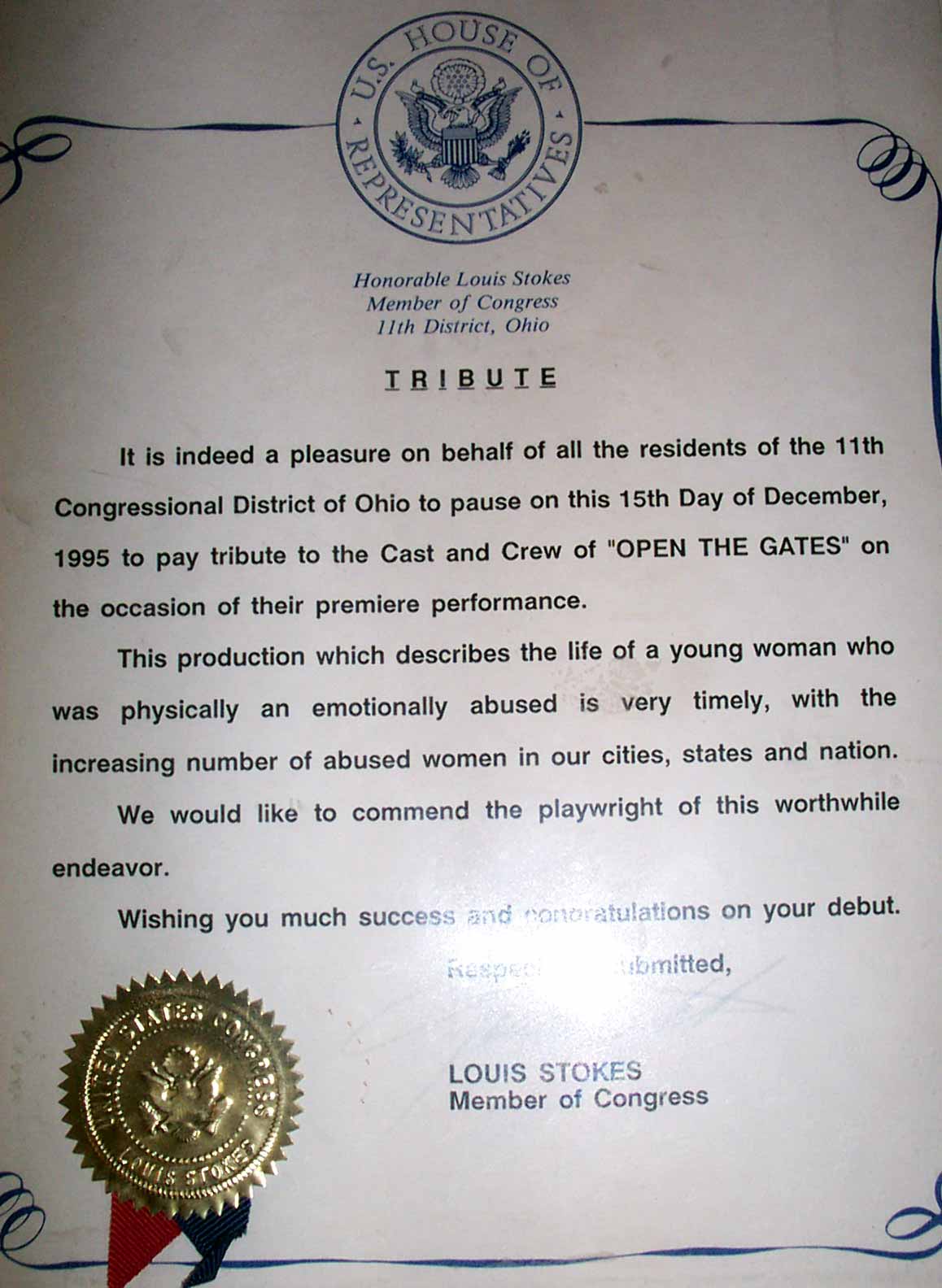
To this day Juanita asks every woman she comes in contact with if they have ever been in an abusive situation. If they say yes she tells her story and offers them help. Her mantra is that love comes from the heart not a fist and a foot. "Sometimes the mouth is even worse then the fist. The mouth can take away your hope. You may not get a beating every day but the mouth never stops and it beats you down just the same."
Juanita turned her story into a book "Open The Gate". She is in the process of writing the sequel: The Other Side." Open the Gate was made into a play and performed at Cleveland State and Case Western Reserve.
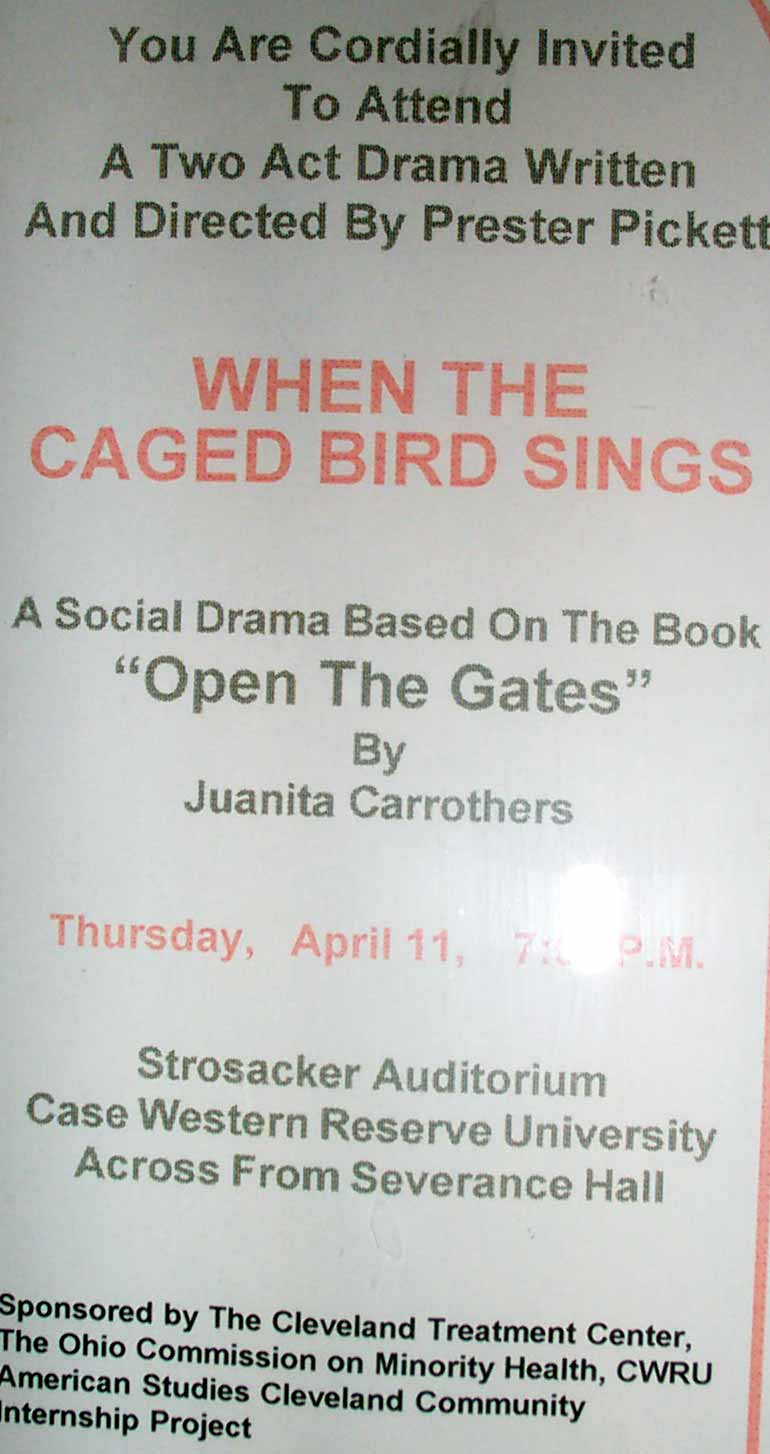
She has received national attention for her fight to acknowledge Domestic Violence as a crime. Although she was bitter when she first got home she remembered God in her prison cell and got over the bitterness in a hurry. "God had work for me to do."
Her book did very well and she took the money she made from it and opened a thrift store on 156th Street where she was able to service 5 different agencies including victims of abuse, fire victims, homeless, etc. Women from all over brought her clothes for her shop - often with tags still on them. "It was one of the happiest times of my life, I was able to help other people, other women. It was a joy. I had been where they are."
She listened to their stories and remembered the pain and the shame she felt. Like them she always had to wear "welfare clothes" and people could pick it out and laughed at her. She remembered that there was never anyone at home to kiss you when you got there or ask you how your day was. "They wouldn't ask because they didn't care. When these poor women tell me that no one cares I know just how bad that feels."
One of Juanita's goals after she got out of prison in 1956 was to make sure her daughter had a good home and a good family. She wanted her daughter to have a father. So in 1958 she married a wonderful man who adopted her daughter. They both knew they were not marrying for love, but they liked and respected each other and her daughter and that was enough for them. They had two more children together, Terrance and Anita.
"In 1961 I put my own key in my own front door. I had my very own home." She was working 2-3 jobs at the time, but she was happy and her sleep at night was restful. In 1970 they separated, but this time it was amicable and with mutual respect.

Juanita would like to tell the whole world "don't condemn until you know. Don't be so quick to put people down because they have less than you. You may be high and mighty now, but that may not last. I hope for you it does, but you can't count on it."
Juanita is not in good health. She has had 19 operations, has suffered both a stroke and a heart attack and has Paget's disease, an incurable bone disease. None of this has slowed her down mentally nor has it kept her silent. As she works on her second book she is also in constant contact with anyone who will listen to her message.
The story of Juanita Carrothers is not a comfortable one. It makes us squirm to read about her life. We may try to be self-righteous and point out things she did wrong or better choices she could have made. But try as we might, it is impossible not to recognize the horror of her story. It may be easier to take if she was the only person to ever suffer this way, but we know that's not true.
Juanita is a crusader. She has the battle scars to attest to her history and commitment. Her goal is to reach other women and give them hope. She wants to touch other lives and make a difference. She wants to teach people to care about each other and to trust in God. She wants people to treat each other with kindness and consideration.
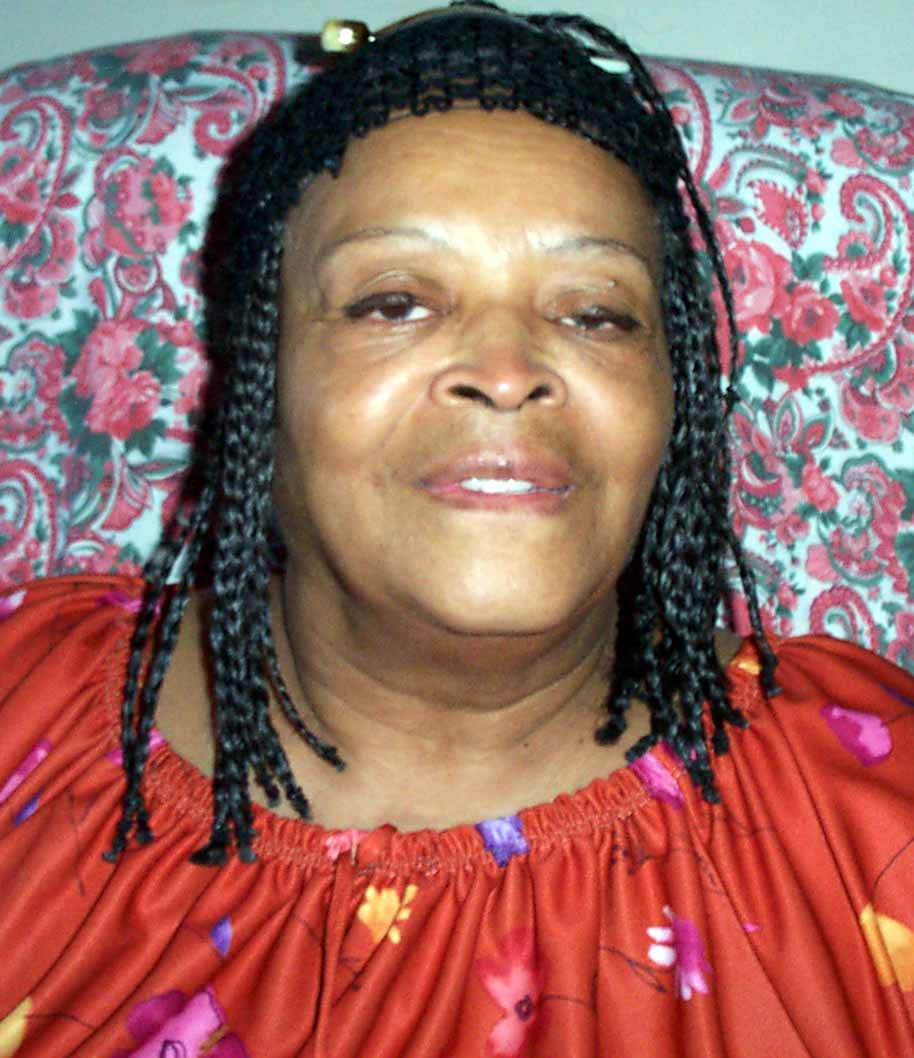
Will she change humanity? Probably not. But will she make a difference? She already has. And she's not done yet.
Profiled by Debbie Hanson<
Top of Page
More of Juanita Carrother's Thoughts & Philosophy
Back to Profiles of Cleveland Seniors
| 
